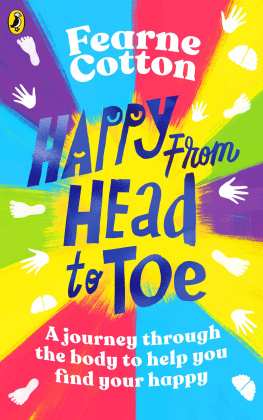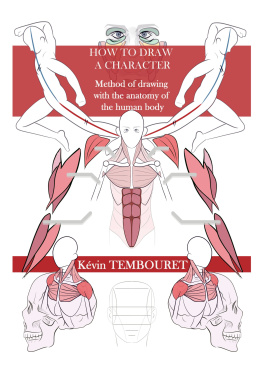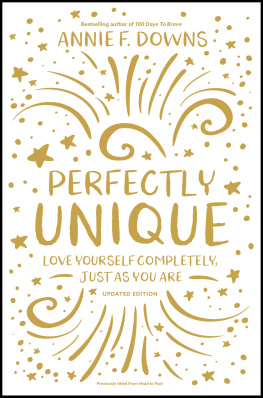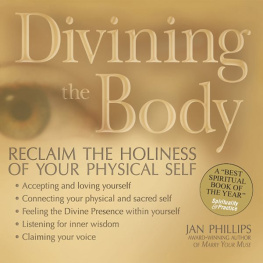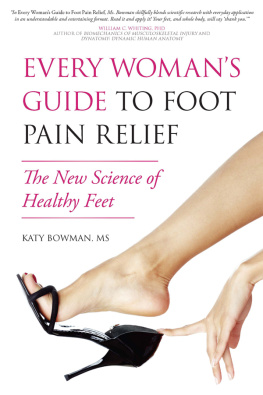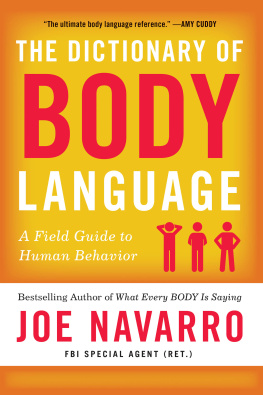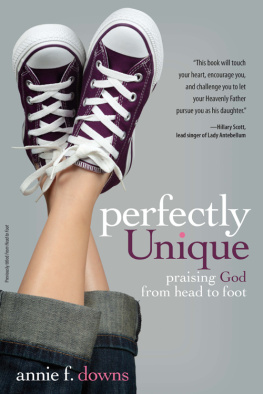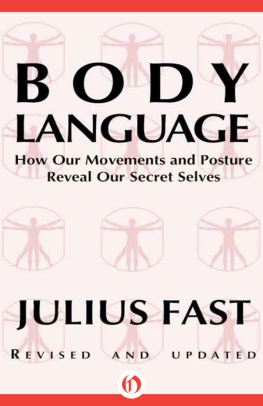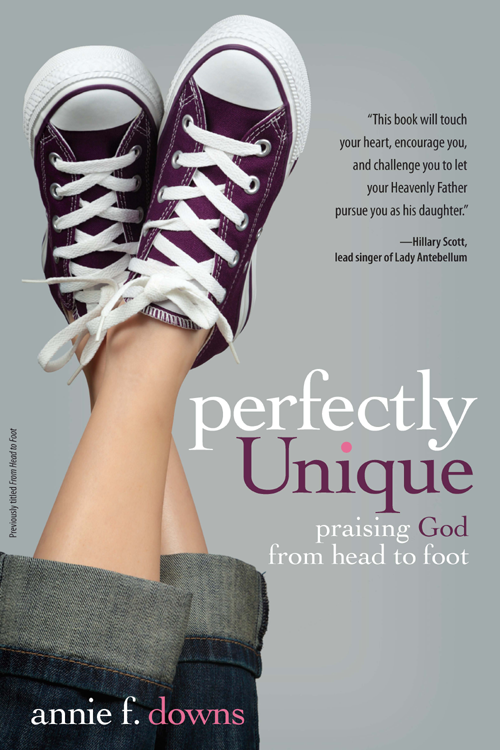annie f. downs
Dear young lady reading this book,
Okay, before you start, I need to warn you of a few things.
Annie laughs really loud. And hard. At herself.
She also loves to intercept high fives. All the time. (So high-five with caution when you are around her.)
She also is like a magnet. Of people. Once you meet her, there is no way youll be able to shake her. But you probably wont mind.
She is also a tremendous human being who writes like the angels sing. Once you start this book, and meet Annie in its pages, you wont be able to stop reading.
So dont say I didnt warn you.
Dave Barnes
Musician, comedian, with a Masters degree in the study of people, and from a certain angle has a strange resemblance to Brad Pitt(s German shepherd) (davebarnes.com)
Our bodies are unique. No two bodies are exactly alike. Though its rumored everyone has a twin somewhere on earth, and I kind of wish it were true, I believe God made us each individual and that we are fearfully and wonderfully made (Psalm 139:14).
I will say that in recent years Ive made friends with two different girls who look shockingly similar. One is a mom of four from Houston; the other is a teacher in Atlanta. They speak alike and laugh alike, and I promise you that they even own the same jewelry. Ive seen it with my own eyes, in all its turquoise-beaded glory. I havent introduced them to each other. I fear what might occur. You know that scene in The Parent Trap where the sisters see each other for the first time? I think something along those lines might happen. Or they could begin to spontaneously fight. Which would actually be horrible. So I will let them stay in their respective states and never know about each other.
My two friends are not identical. There have slight physical differences and obvious personality differences. So there is no chance that they would be confused for each other. They are different. Each individual, each with her own story, each with her own history. Each made once.
I like the idea that God only made me once. Like paintingstheres something special about the first one. My cousin Joe is an artist, and as long as Ive been alive, he has been painting. In fact, he gave me a painting, and it hangs above my bed. Its huge and purple and blue and black and weird. I love it. I asked Joe what its like to replicate art versus painting the original piece.
The short answer he gave is that the original is work, but fun. Any copies, exact or modified, are boring, if not mindless. Creating is just problem solving, and once you solve the original problem, its like you could train bright monkeys to do the replicating. The question is not unlike asking a chef to create the most special onion soup in the world, and after he or she has succeeded beyond any expectations, to keep making it every day.
God made you once. You were worth the work that first time. Then He threw away that mold because one of you is enough for Him. Youre enough. You are the sacred painting, the original. The best bowl of onion soup in the world. (By the way, there is a recipe for amazing onion soup in the appendix.)
One of a Kind
As I think about the uniqueness of each of us, the common comparison is snowflakes. Weve all heard that no two snowflakes are alike. But the only places Ive lived are Georgia and Tennessee. I dont feel good writing about anything that happens in less than fifty degrees Fahrenheit. In Georgia, we only see snow once a year, maybe twice. So Im not the expert on the originality of every snowflake. Likewise, I cant really testify about the best snow boots or even the warmest long underwear. I cant tell you how to drive in snow and ice, and I dont personally know anyone who owns chains for their tires, though I hear that is common in other areas. To be honest, I wouldnt even know what to do if my tires had chains. Its just not that cold down here.
Maybe you arent from the South; maybe you dont know what happens when it snows here. If we get enough to cover the grass, the news reporters are out measuring it live on camera. The world stops at the mere idea of a snowstorm. Seriously.
One February night, during my sophomore year at the University of Georgia, the weather alerts began to come across the television. Snow was coming. In a big bad nasty white way. Classes had never been canceled for winter weather, at least not as long as I had been in college. So we were glued to the television. Counties all around us were canceling school. Fingers crossed, my roommate, Candace, and I decided to embrace the idea that we wouldnt have school the next day. That consisted of such behavior as ceasing all study-related activities and screaming, PLEASE, NO SCHOOL! off our balcony. I know, classy. Sure enough, within the hour, the university canceled all classes due to inclement weather.
The next morning? Sunshine and in the mid-sixties. I am not kidding. It was like the storm made a complete fool of our university decision makers. The students loved it. The administration did not. In fact, if I remember correctly, we went to the park and threw the Frisbee around. On our snow day. Welcome to Georgia.
So snowflakes arent the most common occurrence in my life. Instead, I think a better comparison of our uniqueness is blades of grass. Grass is a common denominator around the world except of course in the desert. Ive never seen two blades of grass that look exactly alike, and Ive seen a lot of yards. I actually got out of my chair and walked out the back door of my house to do a little research. In my findings, based only on a small backyard and using no scientific equipment, all blades of grass seem to have a common formstraight and growing upward. But they come in different heights, widths, and shades of green. I cannot find two that seem to be exact matches. Maybe a blade of grass in my backyard and a blade of grass in the lawn of the Eiffel Tower are perfect twins, but we can never really know that, so well assume not.
Humans are the same way. We may come in different heights, widths, and shades (not green, of course), but we all have a common form. Aside from rare exceptions, we have two arms, two legs, two eyes, one mouth (though mine could really count as two or threeIm loud), a backbone, skin, organs, and so on. You get my point.
God made us this way on purpose. Its no mistake that we are formed the way we are. But why? Why did God make humans in the first place?
Look at Isaiah 43:7:
Everyone who is called by my name, whom I created for my glory, whom I formed and made (emphasis mine).
God created us for His glory. Get ready for a little Old Testament lesson: the word create in the original Hebrew is bara. When this particular word is used, God is the only subjectHe does all the work. Only He can create in this particular way. We may be able to create a painting or create chaos, but as humans, we cannot bara. So when God made you, He did something that only He can do, and He has done that for His glory. The word glory here is translated kabad in Hebrew. This means to bring honor or reputation, to promote something.
This short Hebrew 101 lesson does have a point. (And no, there will not be an ancient-language quiz later, unless you write one for yourself.) We look at the original language of the text to see, according to Scripture, that we were created, made especially by God, to promote Him, glorify Him, and worship Him.

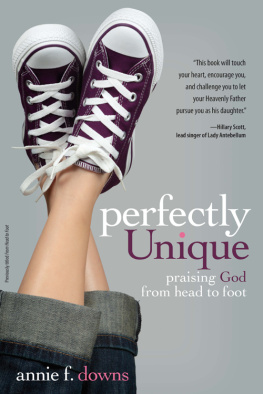
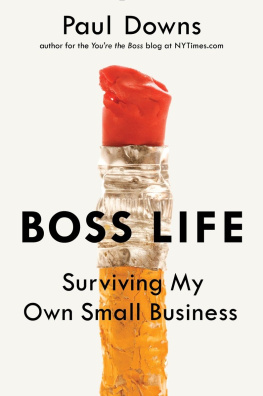
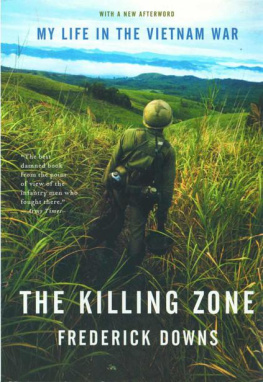

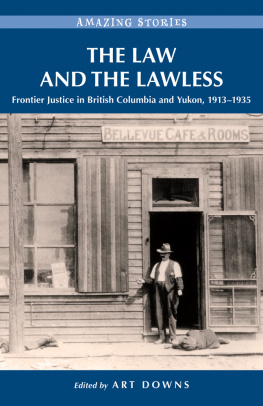
![Downs - How to make a simple pot still : [a step by step guide]](/uploads/posts/book/92548/thumbs/downs-how-to-make-a-simple-pot-still-a-step-by.jpg)
